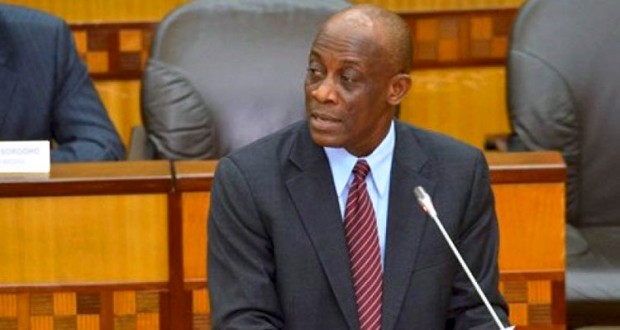Former Minister of Finance, Seth Terkper has suggested that Ghana can avoid resorting to the International Monetary Fund (IMF) for bailouts, if it keeps enough money in the Petroleum Fund.
He said that if more revenue had been accrued in the Fund through Value Added Tax (VAT) and petroleum revenues, Ghana would not have to seek the IMF's assistance after exiting the last programme in 2018.
Mr. Terkper said: “We shot ourselves in the foot by not remaining faithful with the Petroleum Revenue Management Act, and its provisions, which is the structure that other countries put in place together with other initiatives and that’s the way forward.”
“There’s no other easy way, it involves some sacrifice of present consumption to be able to build a more stable future and buffers, which we can when the times are good” he added.
The former Minister said this during a media interaction following the announcement by the government that is has decided to engage the IMF for a Balance of Payment (BoP) support programme.
He said that: “Saving some of the petroleum revenue in the Sinking Fund, Stabilisation Fund and the others will help prevent Ghana from going to the IMF. As a country, we should have been building up our sovereign funds.”
He underscored that strict compliance with the Petroleum Revenue Management Act would be critical for the present and successive governments in ensuring that the country does not find itself in an economic crisis, which would push it to the IMF.
When asked about areas that could come up for discussion between the government and the Bretton Woods institution, he said that the conditionalities to be imposed on Ghana would be known after government’s negotiations with the Fund.
The Tax Professional noted that the possible areas that could come up for discussion include the Free Senior High School (Free SHS) programme, and the nursing and teacher trainee allowances.
He said that: “The financing of the Free SHS, government’s biggest flagship programme, is not sustainable, so, it’s likely to be tabled as part of the broader discussions to take place between government and the IMF.”
“Issues that are likely to come up in the negotiations include the energy sector bailout costs where it can be a conditionality that government will be required to go back to comprehensive reporting of the sector, showing the deficit, arrears and debts in the sector, so that there is greater transparency,” he added.
Mr. Terkper emphasised that: “Another area could be the financing of the budget deficit by the Bank of Ghana (BoG), and the Fund may want to know and discuss how long the government intends to use this approach.
According to the government, it has invited the IMF for a balance of payments support programme to shore up international reserves, stabilise the Cedi, continue smooth payments for imports and restore conditions for strong economic growth.
A team from the International Monetary Fund is expected to begin initial discussions from July 6 to July 13 with Ghanaian authorities for a support programme.
The Fund said it stood ready to assist Ghana to restore macroeconomic stability, safeguarding debt sustainability, promoting inclusive and sustainable growth, and addressing the impact of the war in Ukraine and the lingering pandemic.
Latest Stories
-
Paris 2024: Opening ceremony showcases grandiose celebration of French culture and diversity
3 hours -
Spectacular photos from the Paris 2024 opening ceremony
4 hours -
How decline of Indian vultures led to 500,000 human deaths
4 hours -
Paris 2024: Ghana rocks ‘fabulous fugu’ at olympics opening ceremony
5 hours -
Trust Hospital faces financial strain with rising debt levels – Auditor-General’s report
5 hours -
Electrochem lease: Allocate portions of land to Songor people – Resident demand
5 hours -
82 widows receive financial aid from Chayil Foundation
6 hours -
The silent struggles: Female journalists grapple with Ghana’s high cost of living
6 hours -
BoG yet to make any payment to Service Ghana Auto Group
6 hours -
‘Crushed Young’: The Multimedia Group, JL Properties surprise accident victim’s family with fully-furnished apartment
6 hours -
Asante Kotoko needs structure that would outlive any administration – Opoku Nti
7 hours -
JoyNews exposé on Customs officials demanding bribes airs on July 29
7 hours -
JoyNews Impact Maker Awardee ships first consignment of honey from Kwahu Afram Plains
8 hours -
Joint committee under fire over report on salt mining lease granted Electrochem
8 hours -
Life Lounge with Edem Knight-Tay: Don’t be beaten the third time
9 hours

